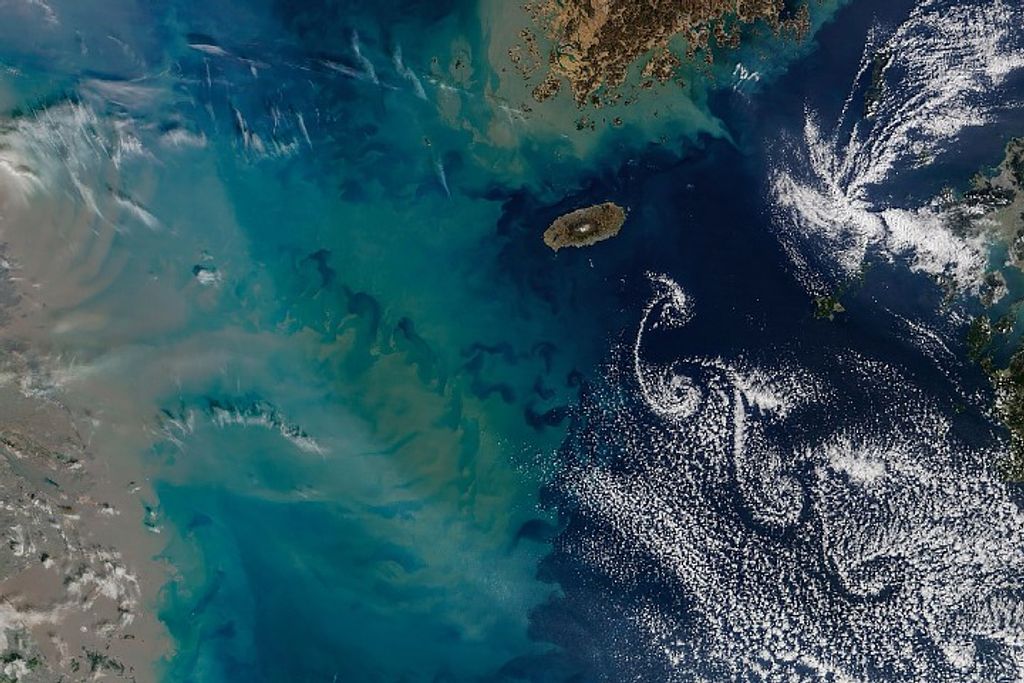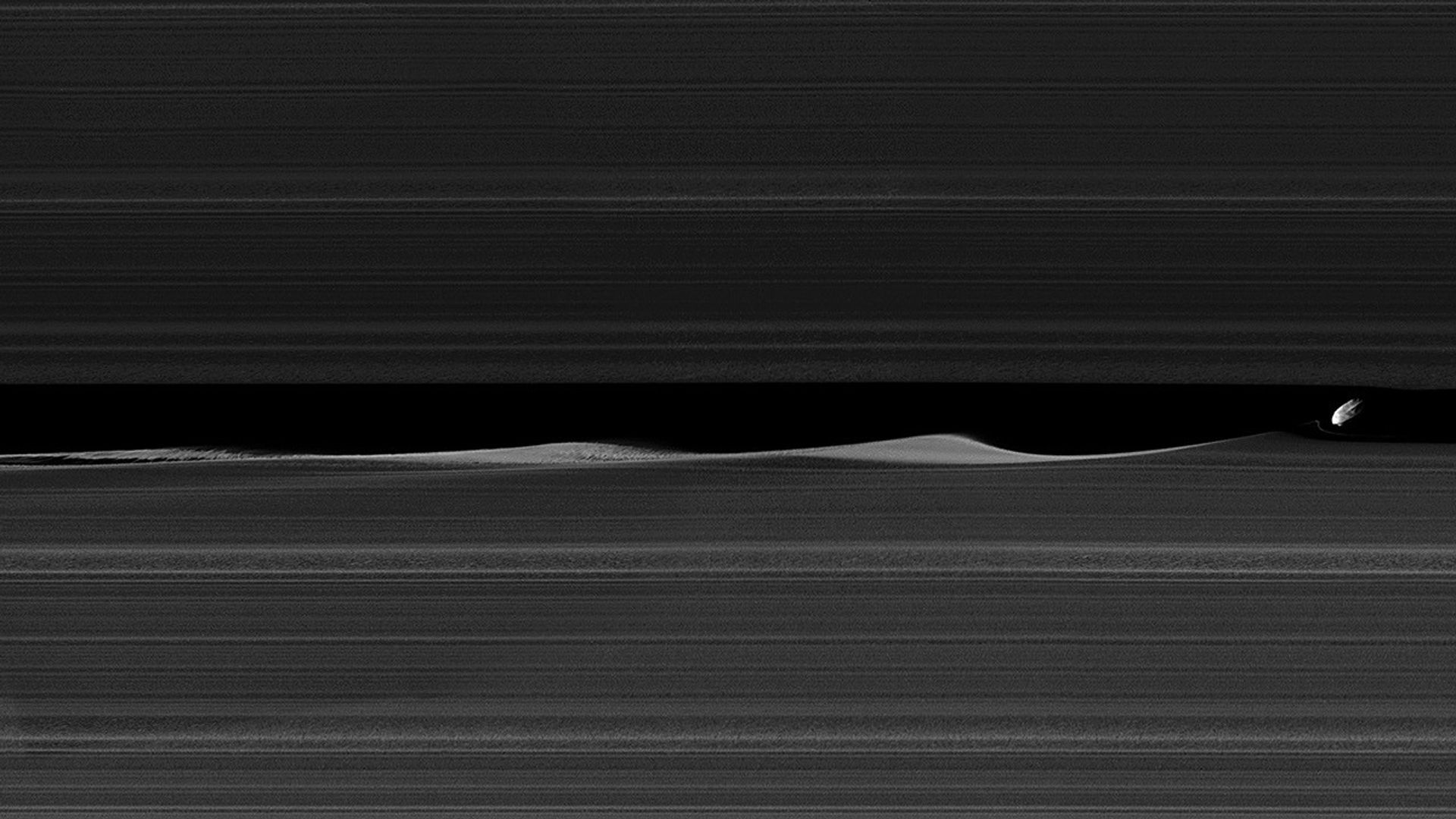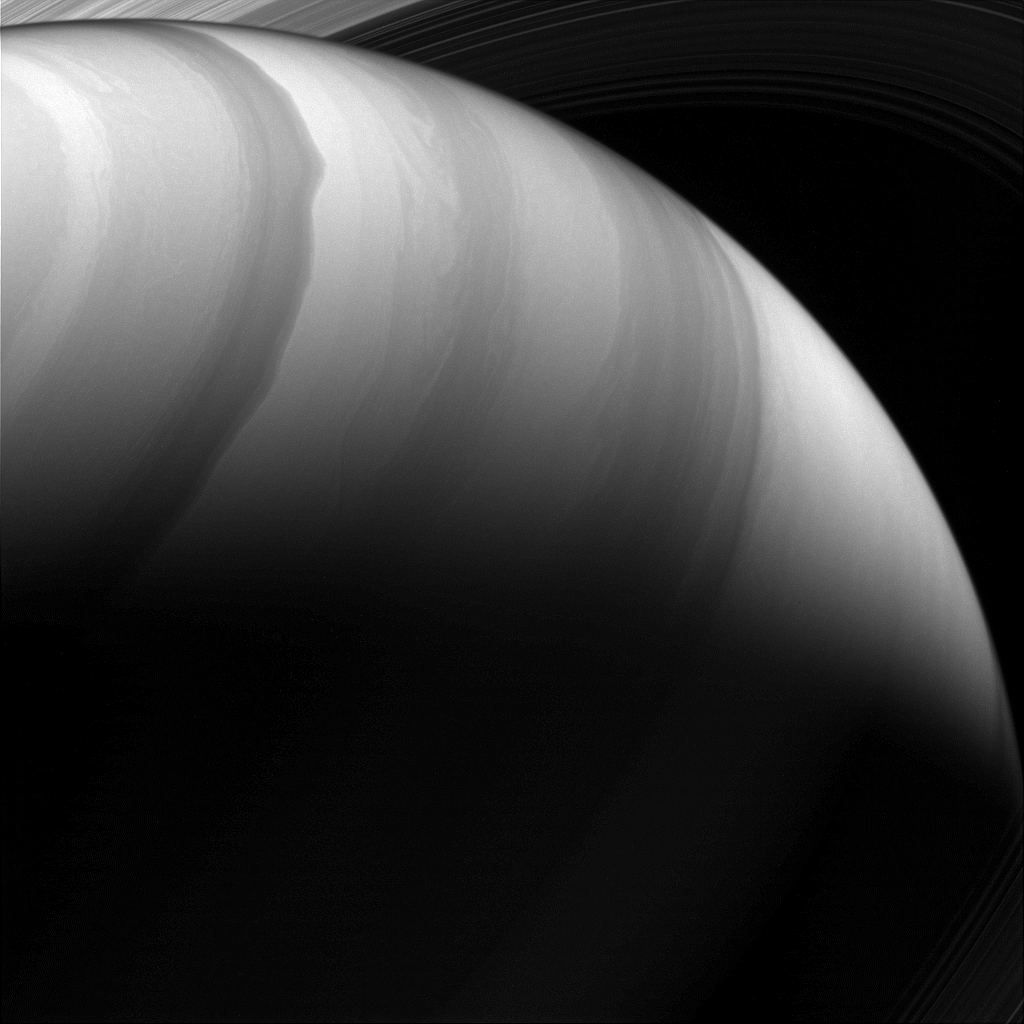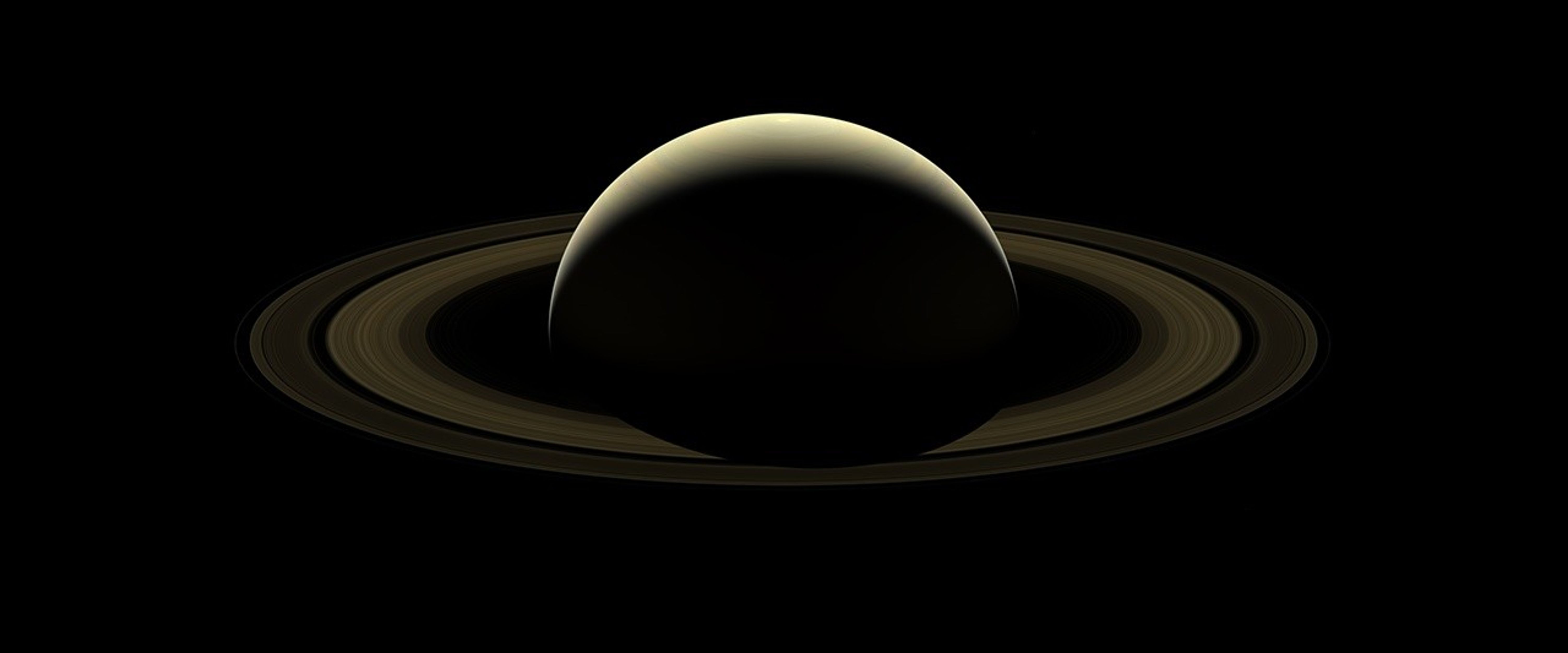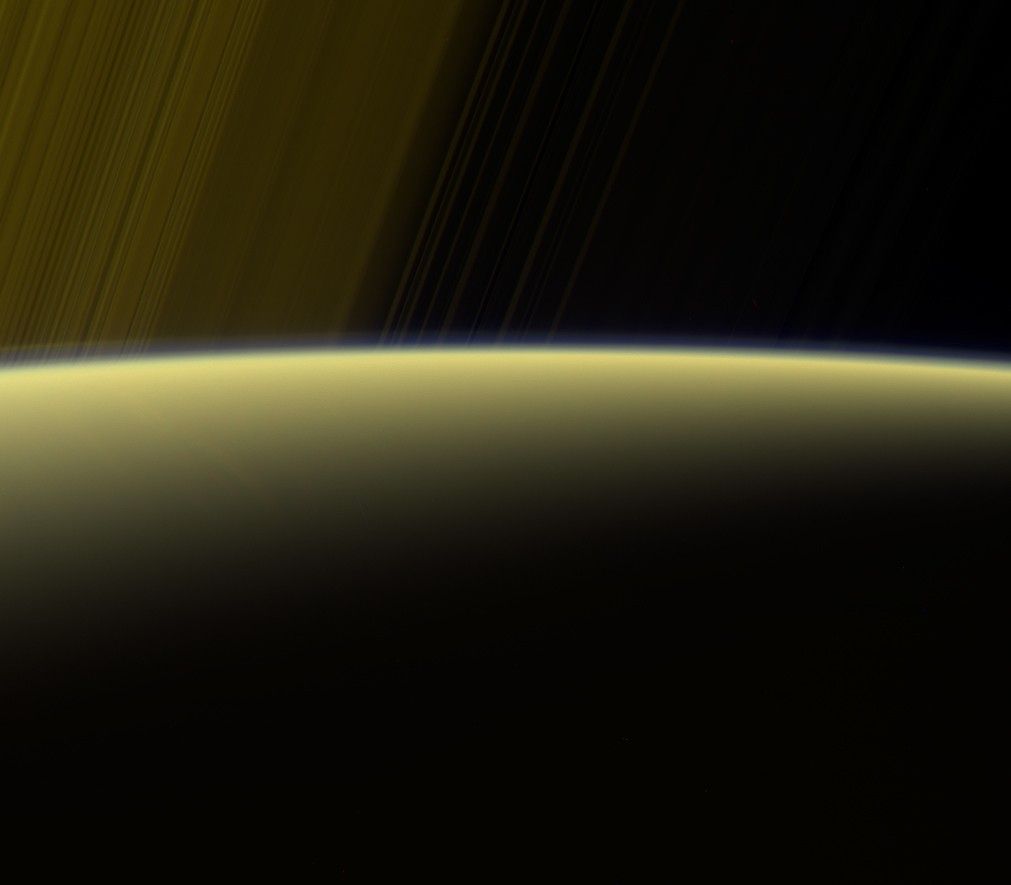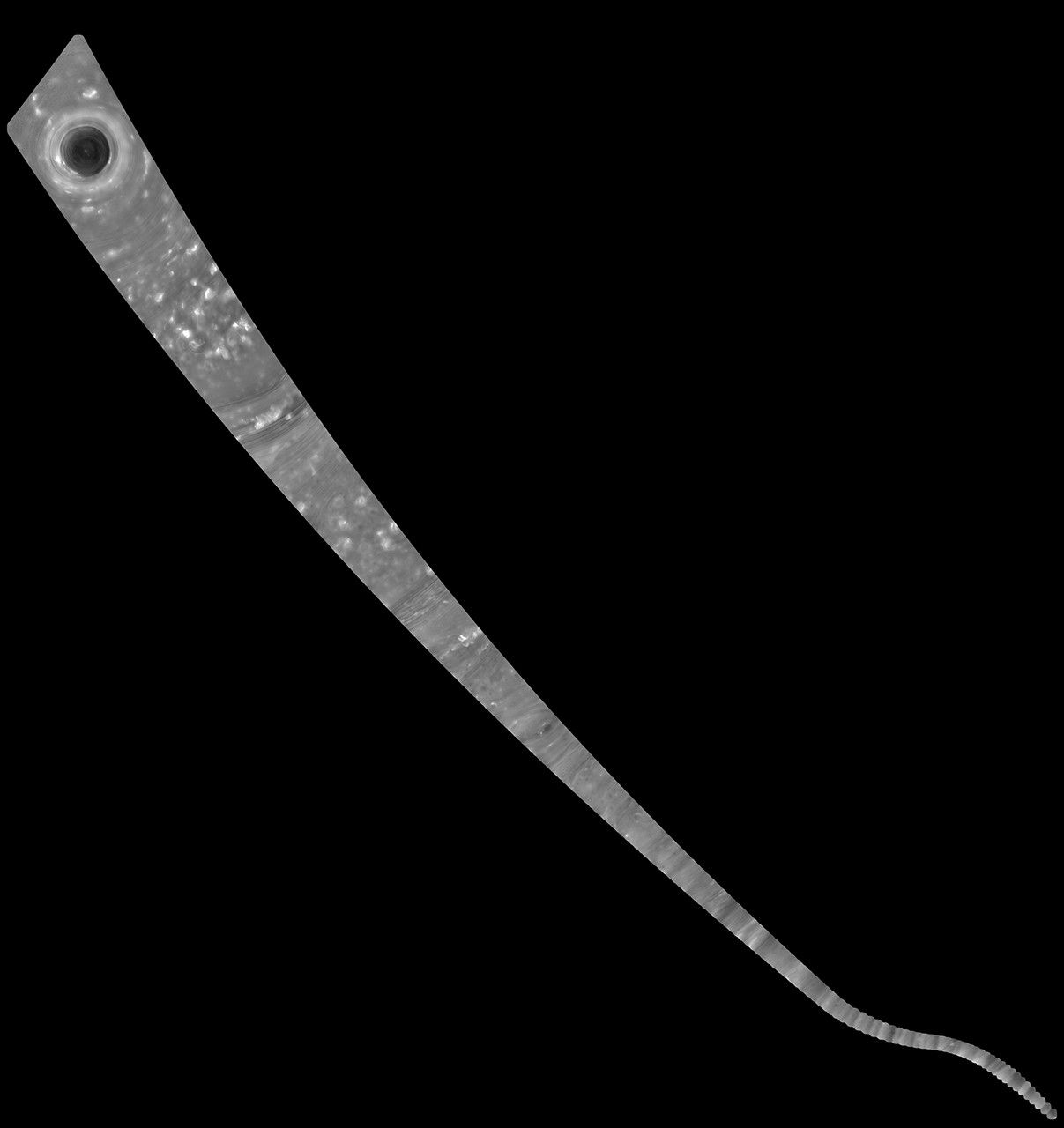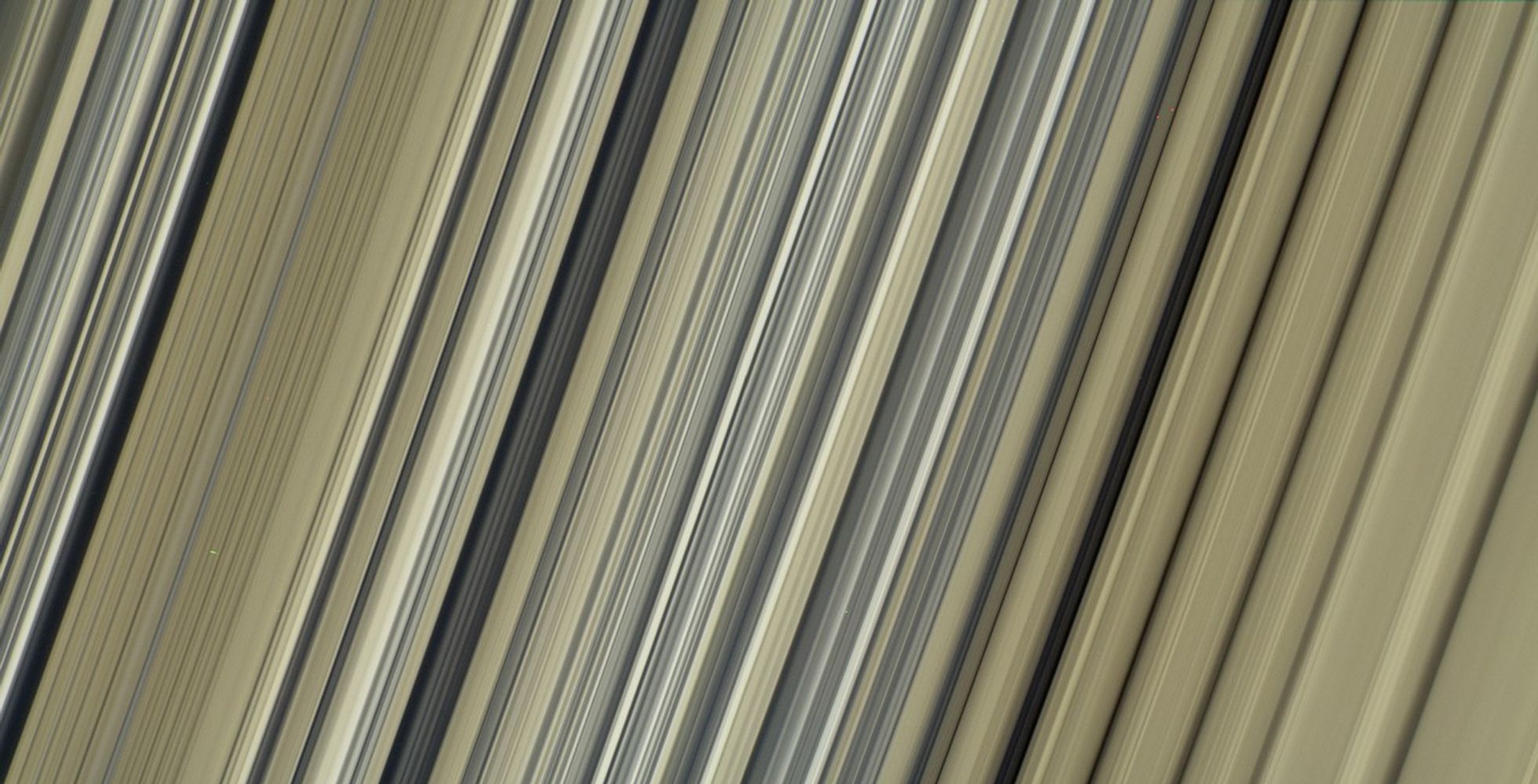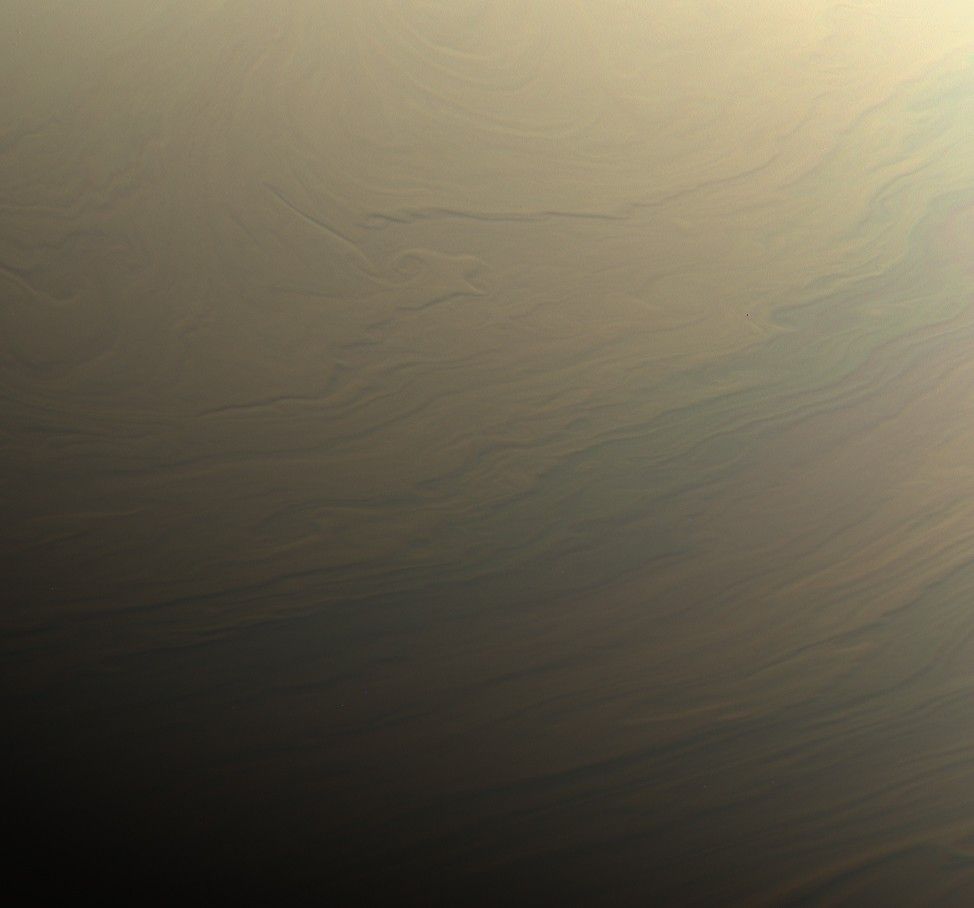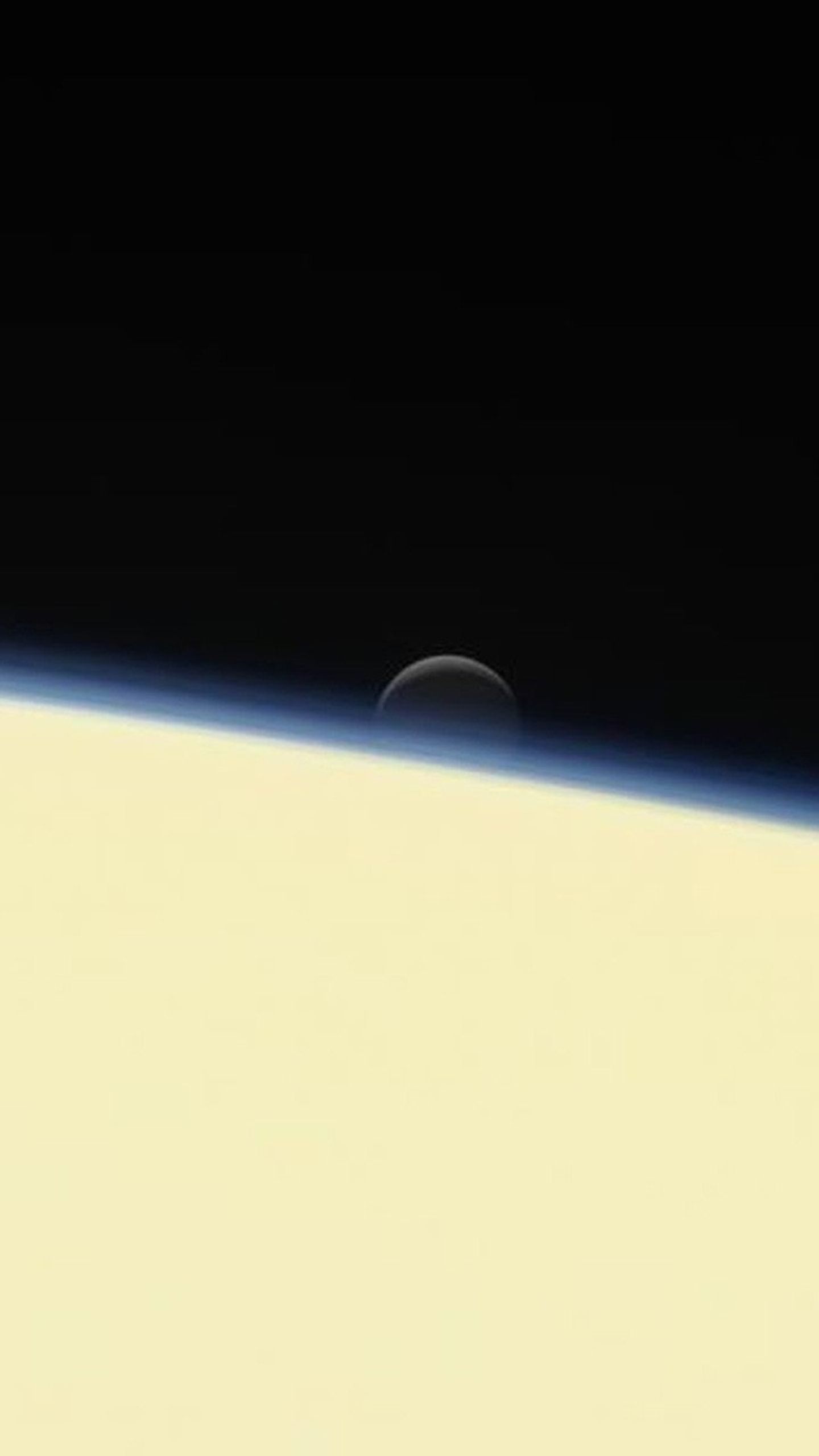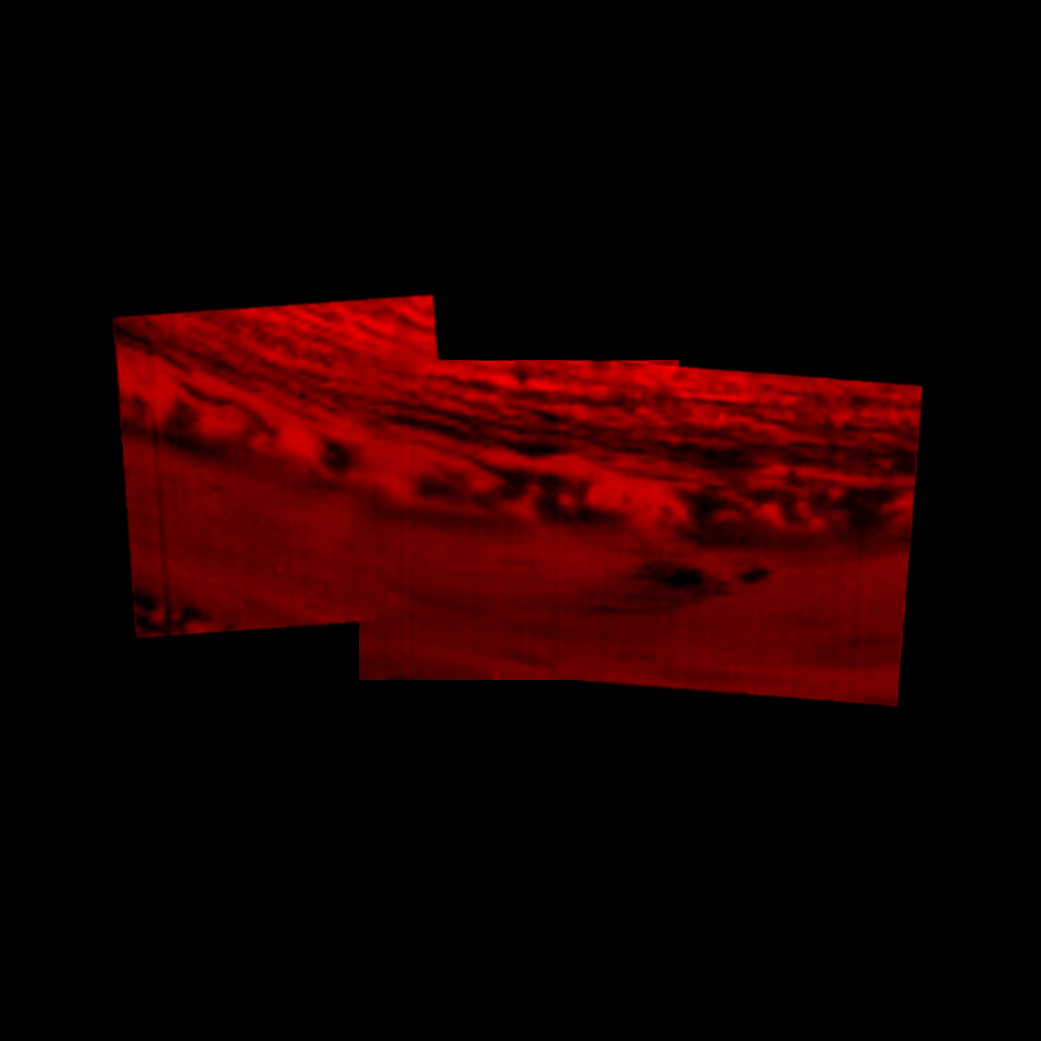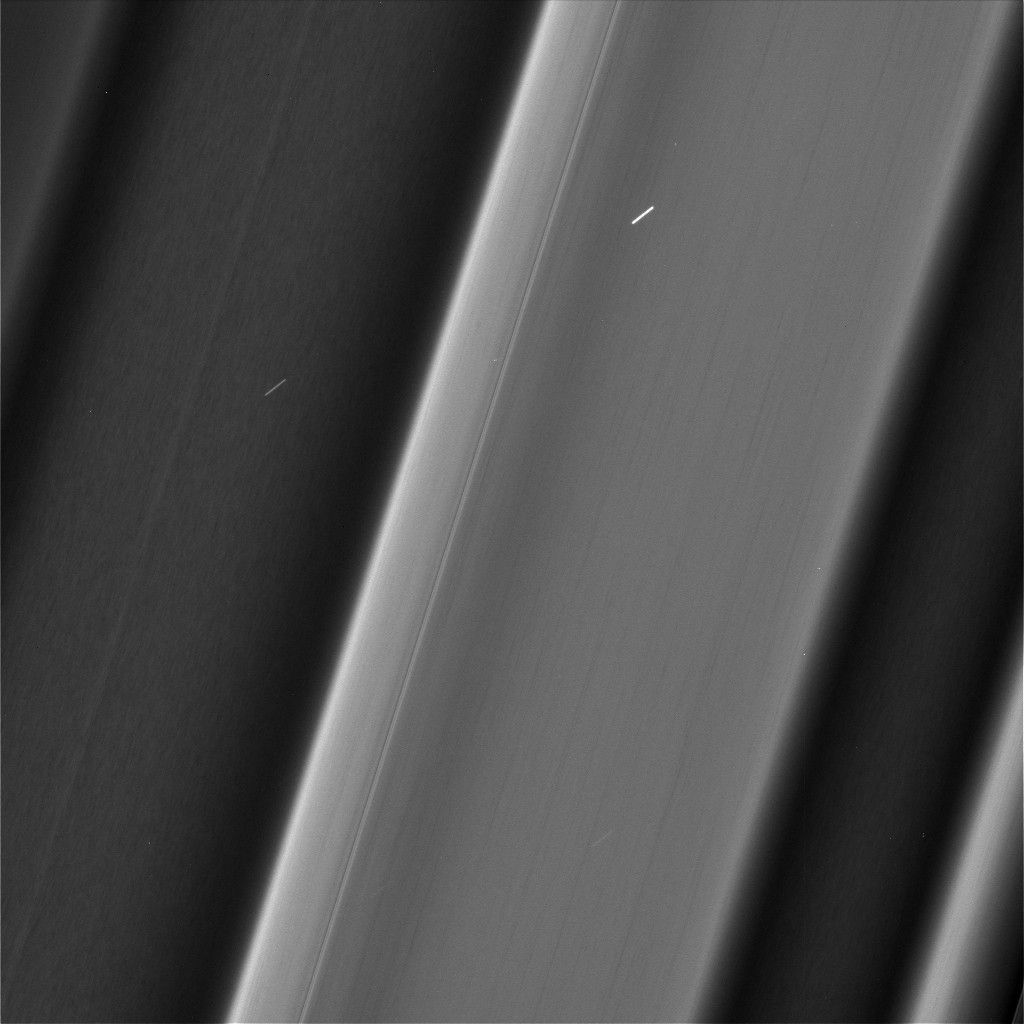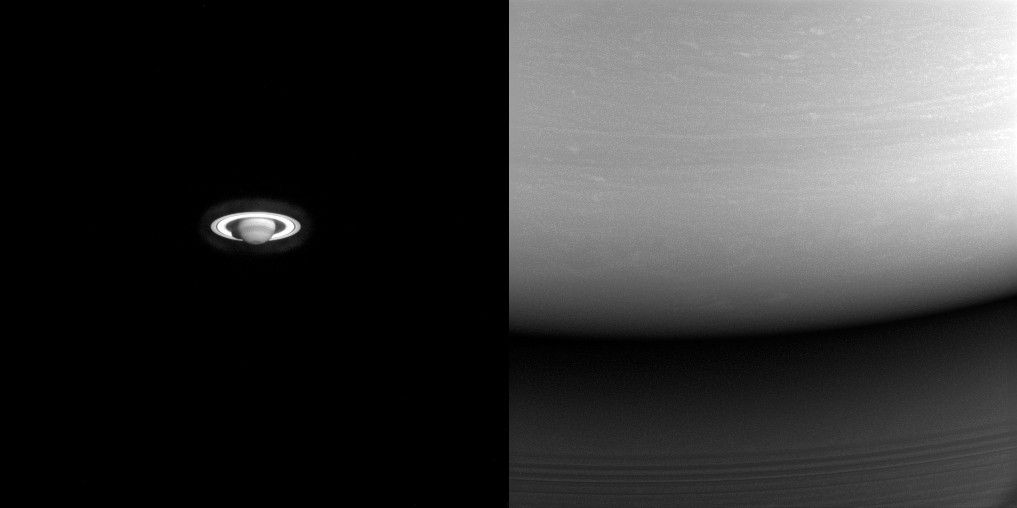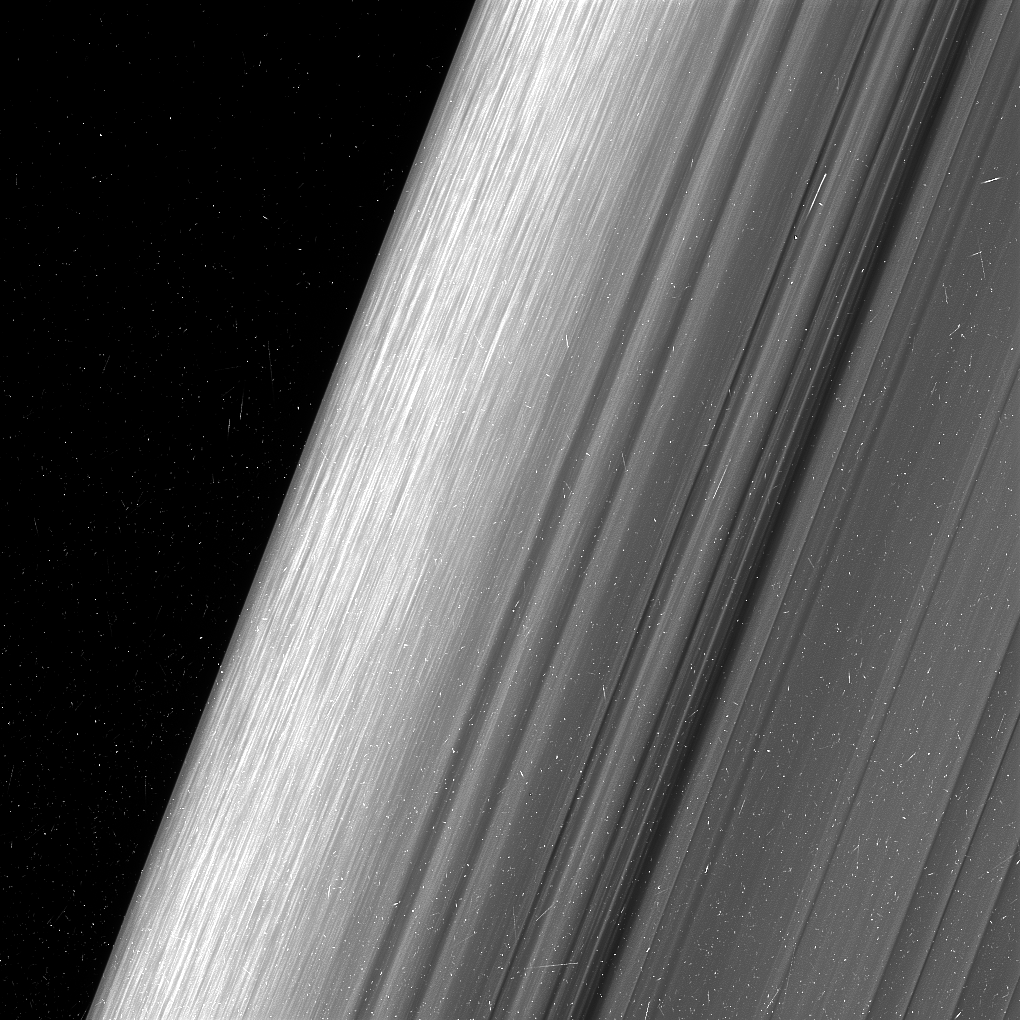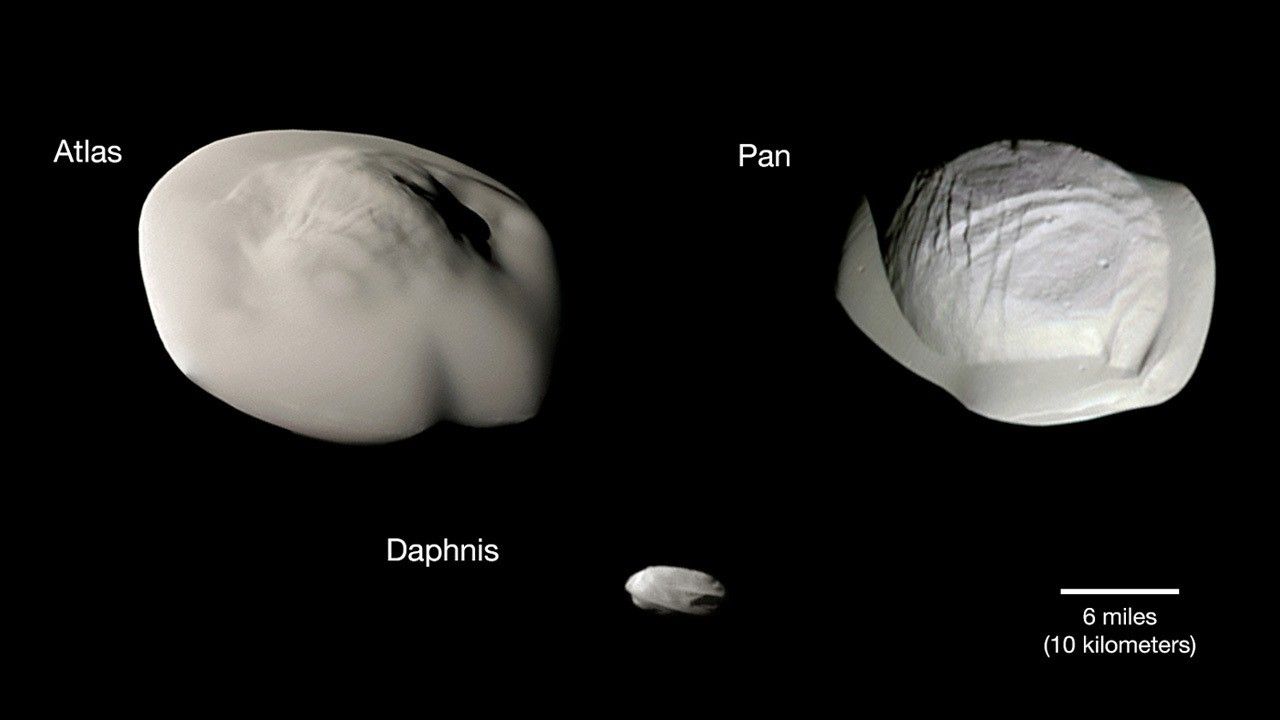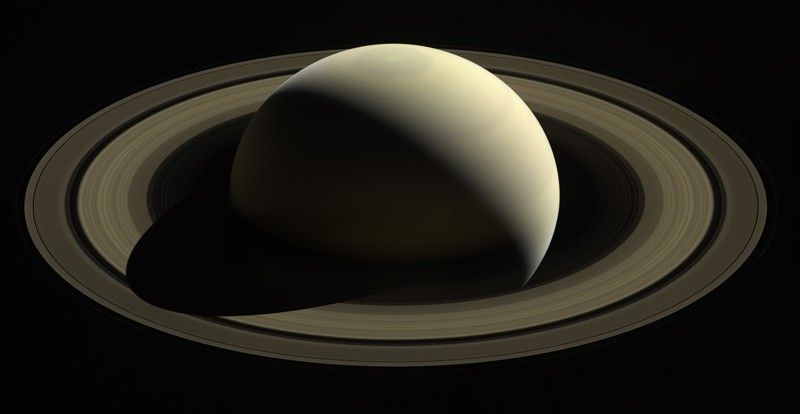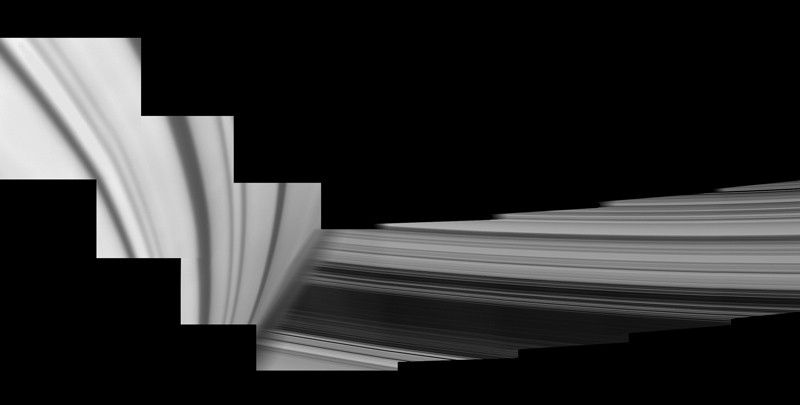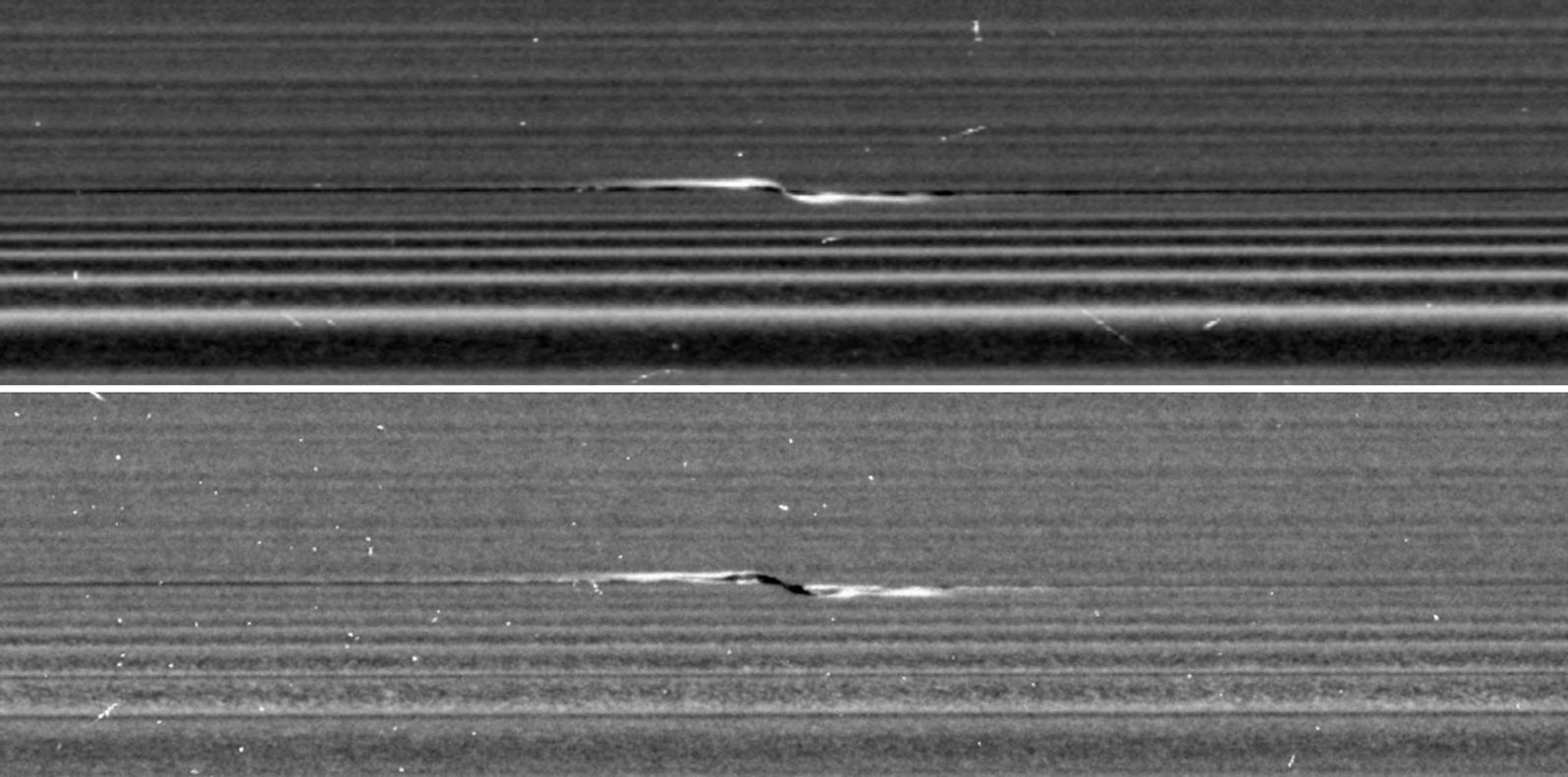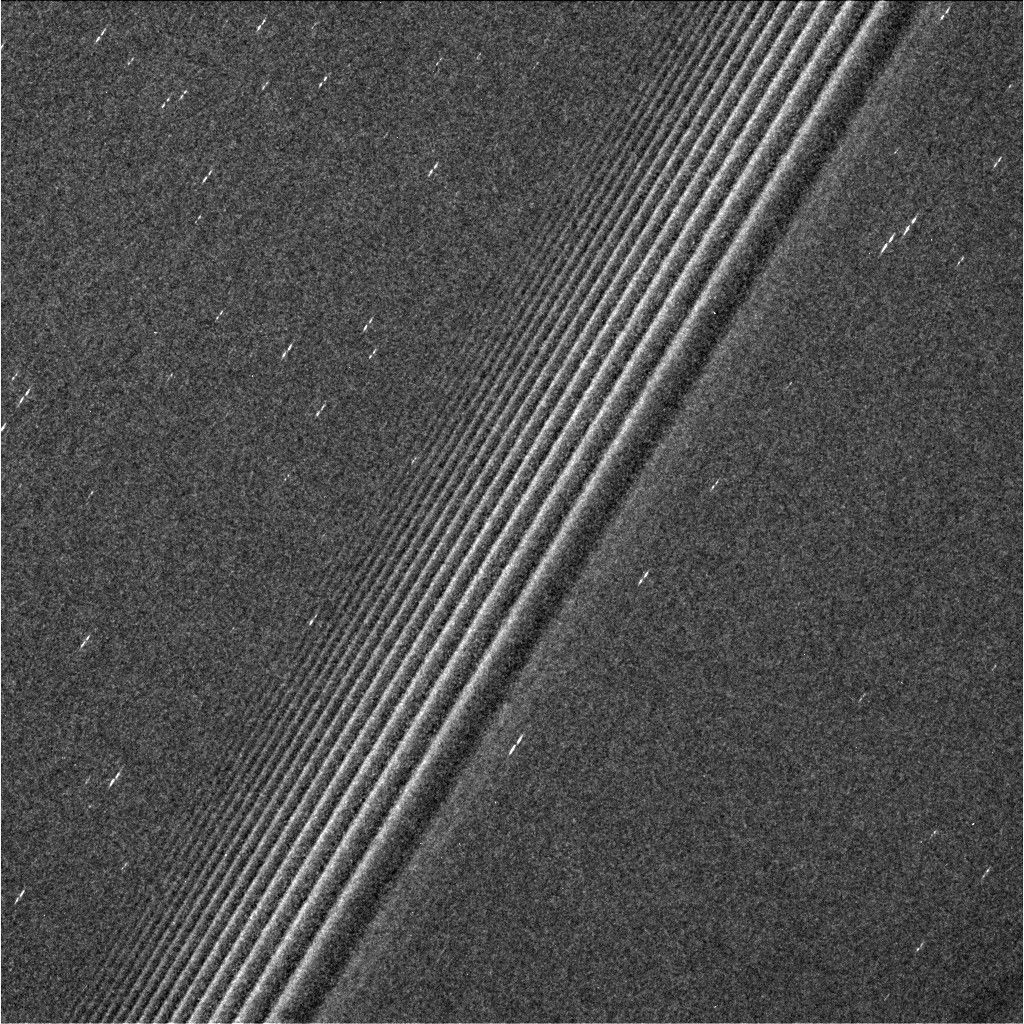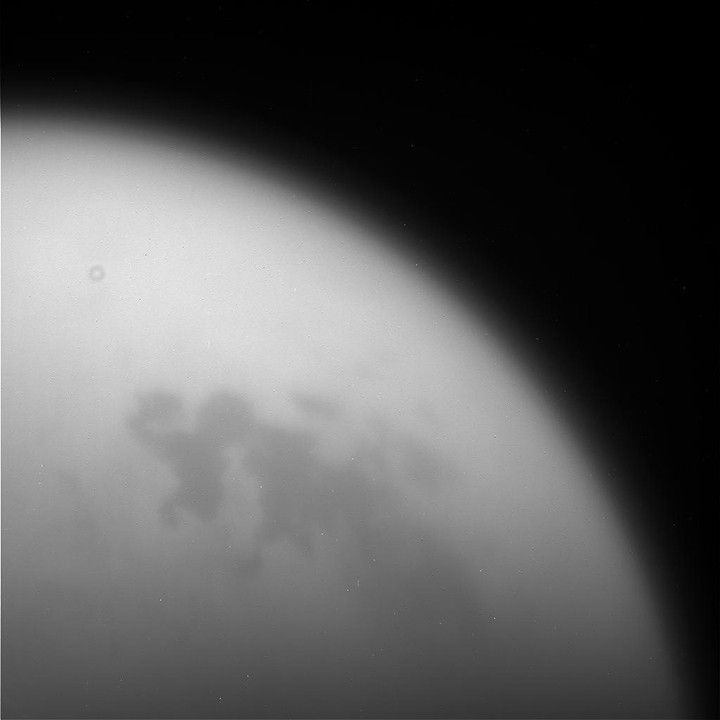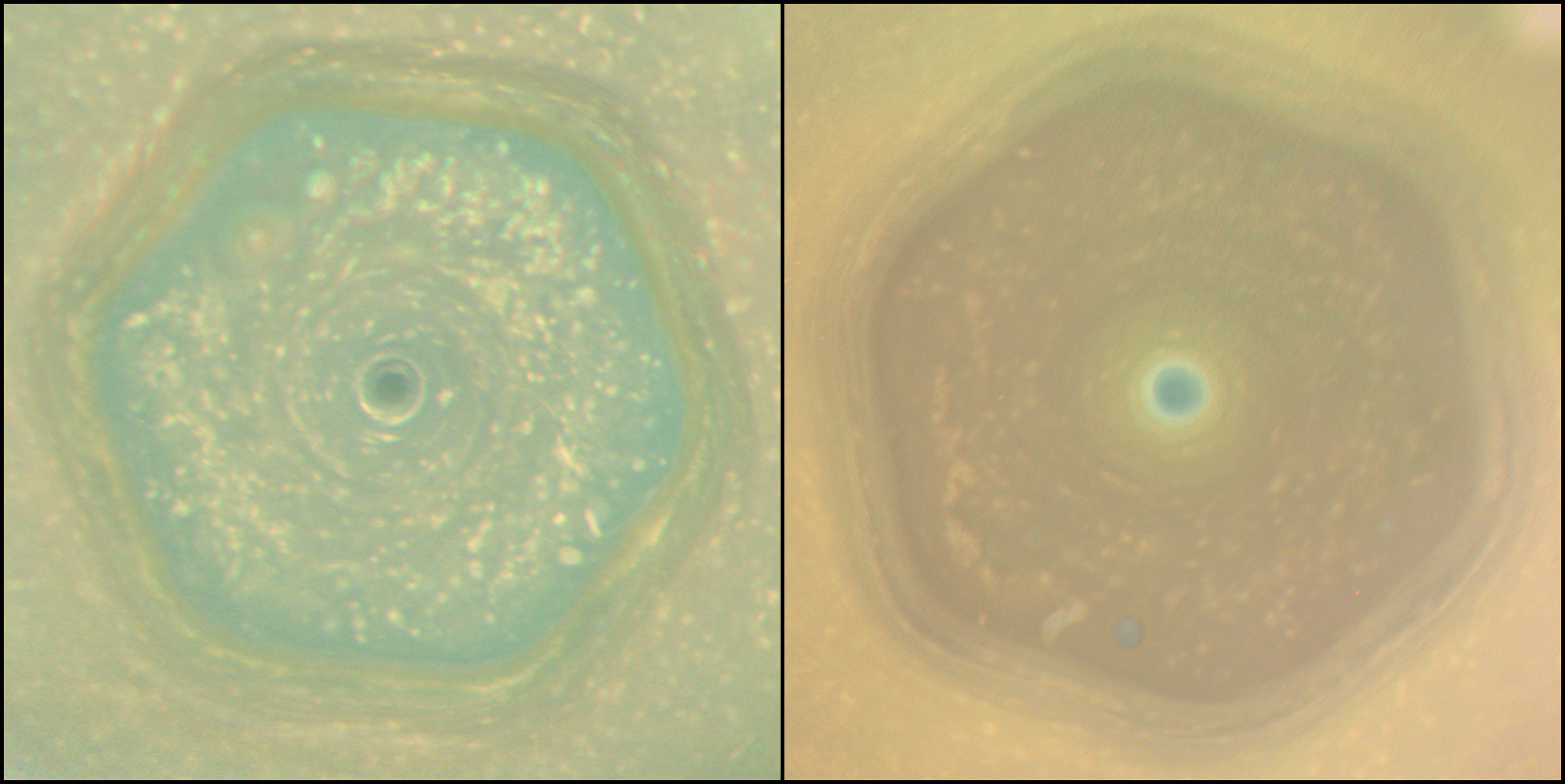
From the spacecraft’s final year, we couldn’t pick just 10! Here are the stand-out images of 2017, as chosen by the Cassini team. The team also chose the year's top science stories.
The images are presented in no particular order. Share your favorites on social media at @CassiniSaturn on Twitter and NASA Cassini on Facebook.
The Realm of Daphnis: Daphnis, one of Saturn's ring-embedded moons, is featured kicking up waves as it orbits within the Keeler gap.
Watercolor World: When imaged at infrared wavelengths that pierce the planet’s upper haze layer, the high-speed winds of Saturn's atmosphere produce watercolor-like patterns.
This full mosaic of Saturn and its rings was taken two days before the spacecraft's dramatic plunge into the planet's atmosphere.
Haze on the Horizon: This false-color view from NASA's Cassini spacecraft gazes toward the rings beyond Saturn's sunlit horizon.
Noodle Mosaic: This mosaic of images combines views captured by Cassini as it made the first dive of the mission's Grand Finale on April 26, 2017.
Top of the World: These turbulent clouds are on top of the world at Saturn. Cassini captured this view on April 26, 2017 -- the day it began its Grand Finale -- as it approached the planet for its first daring dive through the gap between the planet and its rings.
Colorful Structure at Fine Scales: These are the highest-resolution color images of any part of Saturn's rings, to date, showing a portion of the inner-central part of the planet's B Ring.
Dreamy Swirls on Saturn: Cassini gazed toward the northern hemisphere of Saturn to spy subtle, multi-hued bands in the clouds there.
Enceladus Setting Behind Saturn: Saturn's active, ocean-bearing moon Enceladus sinks behind the giant planet in a farewell portrait from Cassini.
Impact Site: Infrared Image: This montage of images, made from data obtained by Cassini's visual and infrared mapping spectrometer, shows the location on Saturn where the Cassini entered Saturn's atmosphere.
Textures in the C Ring: Recent images of features in Saturn's C ring called "plateaus" have deepened the mystery surrounding them. It turns out that these bright bands have a streaky texture that is very different from the textures of the regions around them.
Alpha and Omega: These two images illustrate just how far Cassini traveled to get to Saturn. On the top is one of the earliest images Cassini took of the ringed planet; the other is one of Cassini's final images of Saturn.
Straw in the B Ring's Edge: This image shows a region in Saturn's outer B ring. NASA's Cassini spacecraft viewed this area at a level of detail twice as high as it had ever been observed before.
Small Wonders: This montage shows three of Saturn's small ring moons: Atlas, Daphnis and Pan
So Far from Home: With this view, Cassini captured one of its last looks at Saturn and its main rings from a distance.
Inside-Out Rings: Over the Limb: Cassini obtained the images in this mosaic on May 28, 2017, looking over the horizon just after its sixth pass through the gap between Saturn and its rings as part of the mission's Grand Finale.
Propeller in Saturn's A ring: These are the sharpest images taken of a propeller so far, and show an unprecedented level of detail. The propeller is nicknamed "Santos-Dumont," after the pioneering Brazilian-French aviator.
Propeller Belts of Saturn: This view from NASA's Cassini spacecraft is the sharpest ever taken of belts of the features called propellers in the middle part of Saturn's A ring.
Titan on Sept. 11, 2017: This unprocessed image of Titan was taken by NASA's Cassini spacecraft during the mission's final, distant flyby.










